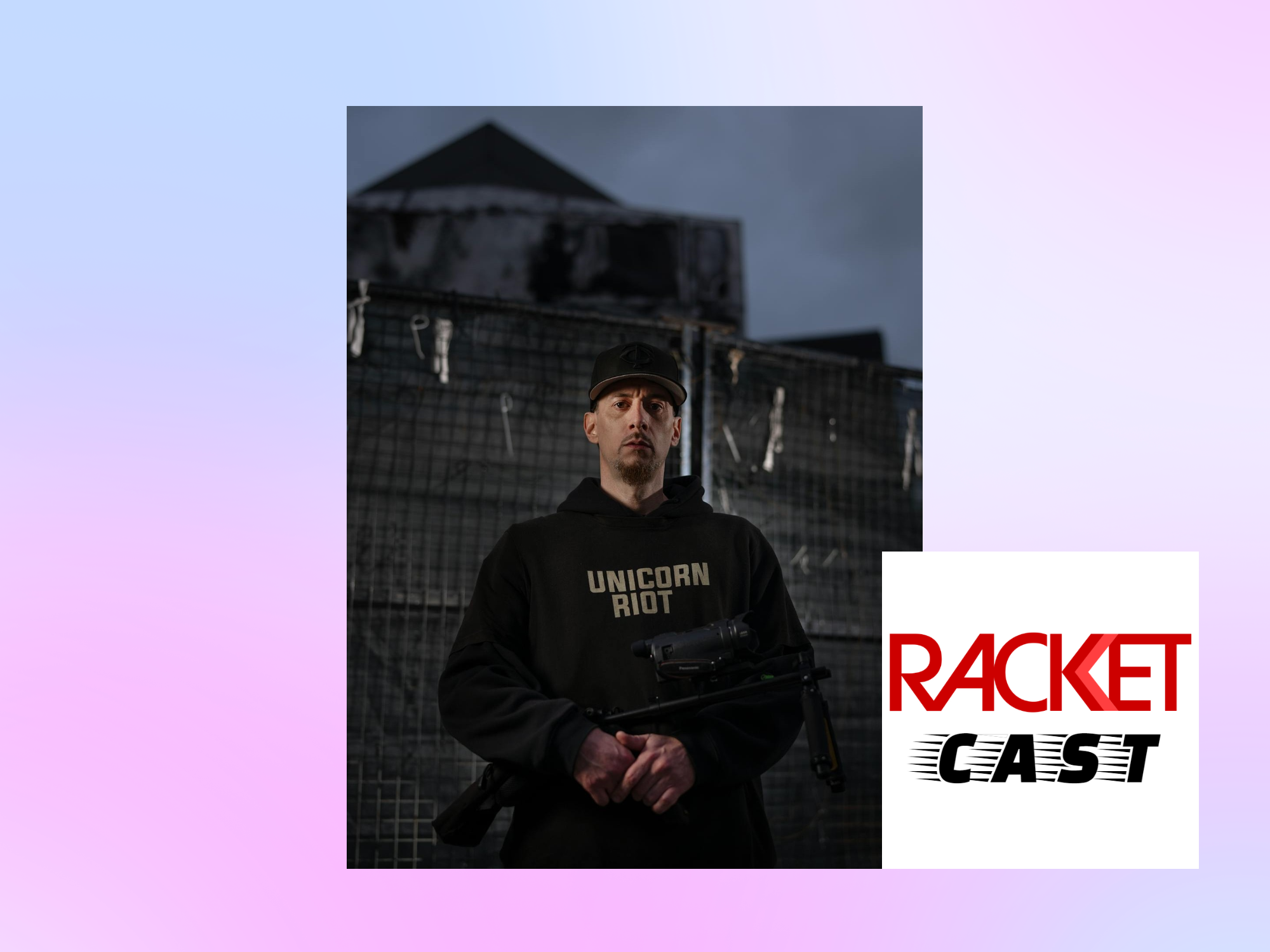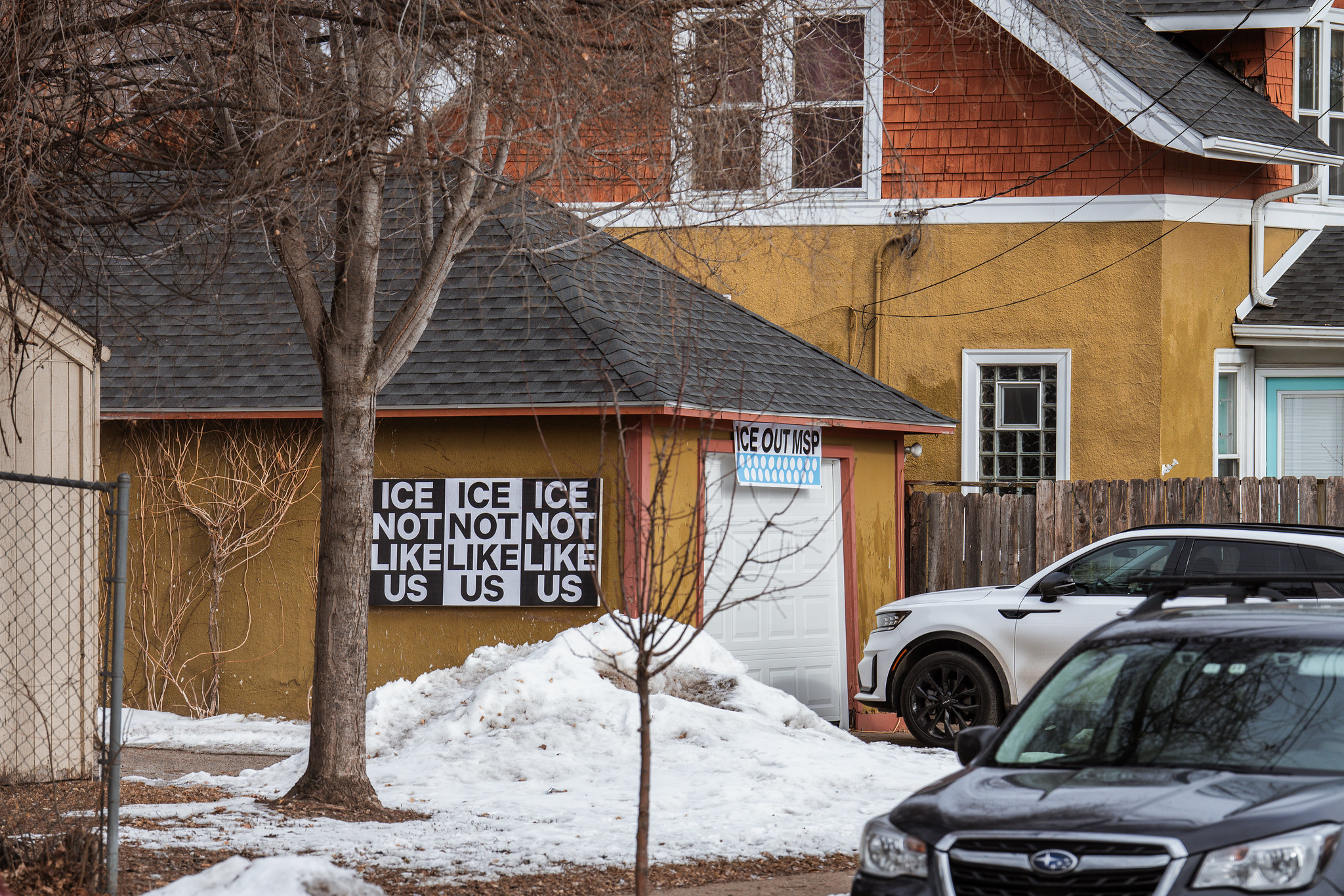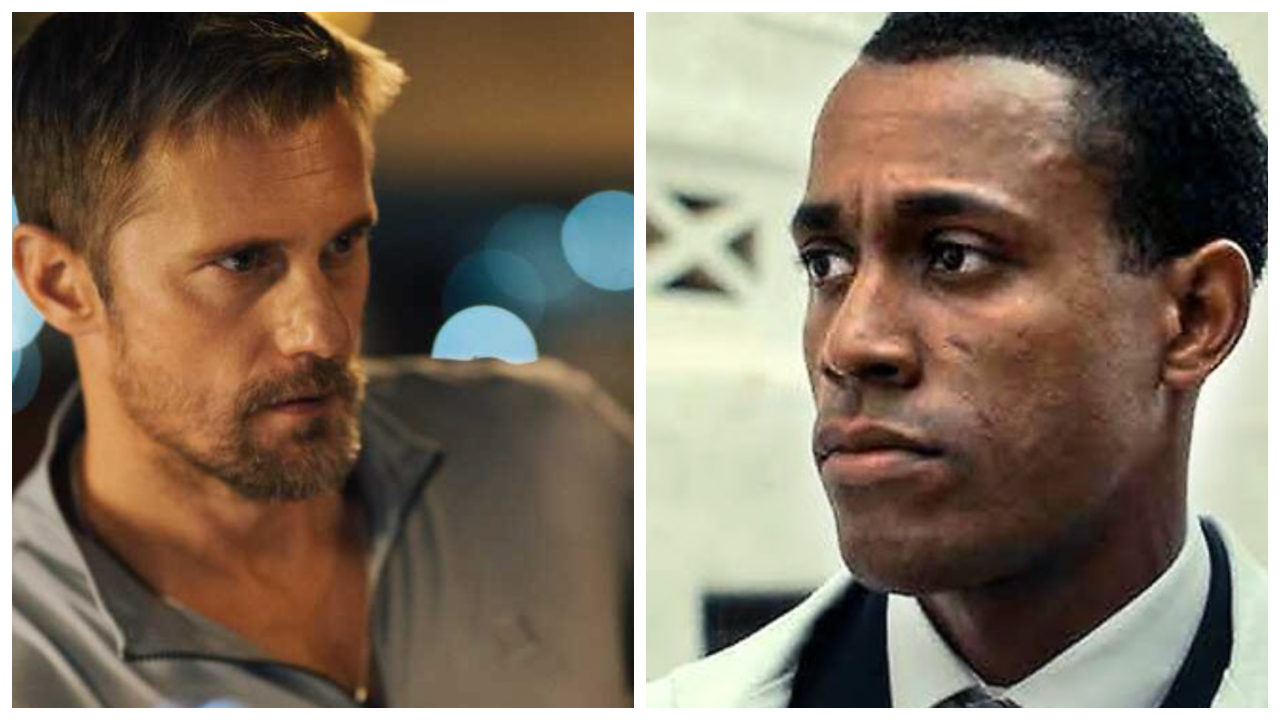Stevie Wonder’s opening act was a QR code.
While the Target Center stage was still unpopulated Sunday night, there it was, up on a large screen, a link to a voter registration site, along with some language from Wonder himself exhorting us to cast our ballots. I’d estimate that a fairly small percentage of those filtering into the arena were unregistered, and that most were primed to vote a straight Democratic ticket at that. Some I’m sure already had. But hey, you know, every vote counts.
That’s certainly the impetus behind the 11-date jaunt that Wonder is calling the "Sing Your Song! As We Fix Our Nation's Broken Heart Tour." He’s focused on battleground states, and this is one of the few times we can consider ourselves lucky to be numbered in their company. While many of his contemporaries bullseye the discretionary spending of pampered boomers every summer, Stevie mostly stays off the road. He’s performed in Minneapolis three times in the past 36 years, most recently in 2015. This may not be his last visit. But he is 74.
Wonder rarely addressed the political nature of the event head on. He didn’t name Kamala Harris even once (though he did cutely refer to “the next president” as “she”), let alone that other guy (though he referenced the already-notorious fascist rally that had taken place in Madison Square Garden earlier that day). He didn’t have to. We knew where we were and we knew who he was.
Wonder, decked out in black leather, was guided onstage by two of his nine children, Aisha and Kailand. After some introductory remarks (thing about Stevie is, he's always gonna have remarks), he strummed his opening song, the brand-new for Election 2024 “Can We Fix Our Nation’s Broken Heart,” on his harpejji, an electronic stringed keyboard he’s quite taken with. Like just about any song the guy’s ever written, you’ll remember the tune forever after a listen or two. Its lyrics recoil from the state of the nation, express Stevie’s faith in the possibility that the United States is a redeemable project, and offer his perennial antidote to the ills of the world: love.
This may seem an insufficient way to address whatever’s keeping you up at night, whether that’s incipient fascism or U.S.-funded genocide or, like many of us, both. And to suggest the cure for “people pushing and shouting” is “truth, compassion, and love,” is both accurate and beside the point, in the same way that saying the way to end war is to stop fighting.
But Stevie Wonder is not a politician. Stevie Wonder is a musician. An artist. A genius if you like. An inspiration absolutely. This song alone would not ease my own troubled heart or settle my queasy gut or soothe my overactive brain. But a full two and half hours of Stevie Wonder being Stevie Wonder? That did the trick.
The night revved up immediately with two songs from Wonder’s 1980 album, Hotter Than July: the piano-driven “As If You Read My Mind” into the pan-African reggae celebration “Master Blaster (Jammin’).” Next came “Higher Ground,” which he’d played at the DNC last month, a song that preserved the Civil Rights era message to “keep on pushin’” for the grimy, cynical ’70s and beyond.
When Wonder tried to hand that song over to the audience, they weren’t quite up to the task. Still, he was determined to raise every voice in the arena. He led a singalong to “You Are My Sunshine,” which flowed evenly into the warm bath of electric piano that opens “You Are the Sunshine of My Life.” Later he tried to stir up a vocal contest between men and women during “Signed, Sealed, Delivered” that didn’t quite gel, especially on the male side. “It’s a tie,” he lied politely.
Still, hit after hit offered proof of his inexhaustibility, calling for superlatives as often as not. No song has ever captured the exuberance of a youth well wasted as sharply as “I Wish.” “Isn’t She Lovely” is the sweetest song about becoming a dad ever to exist, but also the most awestruck. Joy feels like too pallid a word to describe what Wonder expresses when he funnels his experience of the sublime into a pop song.
Stevie would tell you that his inspiration is divine, and even a non-believer can understand why. Is Stevie Wonder a genius? The overuse of that word has always struck me as a needless mystification of creativity. But once we account for talent and brains and craft and hard work there’s a gift not quite explicable that remains, and genius is as good a word for that as any.
Those hits did include “I Just Called to Say I Love You,” a mysteriously loathed trifle whose greatest flaw lies in how it reminds us that sometimes this shit comes way too easy to Stevie. It certainly didn’t sound any more substantial in this context, with the rhythm section almost audibly restraining itself, but I’ll note that when it received an Oscar for Best Song in 1985, Wonder dedicated his win to the then-imprisoned Nelson Mandela on national TV. Suck it, Jack Black.
In the final, rushed moments of the show, with Wonder repeating “I know we need to stop” as though he was worried that he’d get yanked off stage at any moment. But even then, “My Eyes Don’t Cry” (from his underrated 1987 album Characters), the jazzy burble “Do I Do,” and the Latin-tinged “Another Star” didn’t feel truncated—instead we were left with the simple impression that there had been more Stevie Wonder than one night could contain.
If you’ve ever seen Stevie Wonder before, you know the guy can gab, and it’s refreshing to see a legend who’s also an unscripted goofball. He cracked even more blind jokes than usual, a subject he’s always made light of. “Hey Stevie, did you drive a car for real?” he said at one point, referencing a moment in 2021 when he was spotted behind the wheel of a Model S. He turned out to be testing the auto driving feature in 2021, though tonight he added in a comic mumble, “I guess I won’t be drivin’ no Tesla no more.”
Wonder even asked us turn to the person beside us, like we were in church, and tell them we loved them. “I love you, Ross,” I said to the Pioneer Press critic on deadline beside me.
Stevie Wonder's voice hasn’t lost any of his range and age has hardly chilled the unduplicable warmth of his timbre. (The new jacks who mimicked him in the ’90s typically came off as hopelessly whiny—not that many of the jills they targeted seemed to mind.) But that voice isn’t quite as elastic as it once was, and the man himself is no longer as robust. A coughing fit interrupted “For Once in My Life” and Wonder had to restart after a few drinks of water.
Wonder took a (previously scheduled) breather mid-set (to rest his “t’roat,” he joked) surrendering the stage to the insufferably supper-clubby Sheléa Melody McDonald. Her patter was glib and her setlist included familiar oldies from Aretha Franklin, Carole King, and Roberta Flack. The audience ate it up, and I’ll grant that it had the feel of an old-time soul revue and functioned as a well-timed pee break. I just wish she hadn’t stuck around to split “Don’t You Worry Bout a Thing” with Stevie when he returned. And I wish his coughing hadn't reminded me that Stevie Wonder is mortal.
Mortality again crossed my mind as Wonder strutted through the elegant show-offery of his irresistible nod to jazz greats, “Sir Duke.” When it came time to mention a “voice… ringing out,” Wonder sandwiched Whitney alongside Ella, and it made me think of how much Black death Wonder has lived through.
I remembered how the rock critic Dave Marsh once wrote about this song, saying that only Stevie was talented enough at that moment to give those predecessors the tribute they deserved. Who, he asked, could possibly do the same for Wonder and his generation when the time came. The obvious answer at that time was Prince. But now…
“I miss Prince so much,” Wonder had said earlier in the night. (Though he’s one of the few people I wouldn’t mind hearing sing “Purple Rain,” instead we got the backup singers looking to the past on “1999,” which was fine.) Music history is strewn with broken Black bodies. Some were Stevie’s elders, but many of them were peers who never grew old, like his fellow Motown alums Marvin and Michael, or his successors Prince and Whitney.
Before that had come the Civil Rights martyrs of the ’60s, leading up to Dr. King, whose birthday Wonder fought successfully to make a national holiday. Since then have come the everyday fallen of the present—Wonder dedicated “Love’s in Need of Love Today” to the family of George Floyd.
There’s that word again. “Love’s in Need of Love Today” is only slightly more eloquent than “Can We Fix Our Nation’s Broken Heart” about what the world needs now. But musically, its intricately weaving harmonies, the grieving solace of its melody, and Wonder’s own searching vocal (he told us he felt the presence of Sam Cooke in the studio with him when he recorded it) create a space that’s sad but not painful, that suggests how life without love would feel without forcing us to endure its utter absence.
That’s a space we need. Have you taken a moment lately not to be angry or frightened or frustrated, and just to mourn the potential futures for this country and this world that haven’t been realized, that have been actively thwarted? When Wonder invokes love, he says there will be time enough to fight, but we deserve just one moment to soften ourselves. A left politics without love will at best prize the familiar comforts of struggle over the possibility of victory. Maybe you fear that if you let your guard down a fraction you’d simply dissolve into a pool of despair. But Wonder gives you the opportunity to experience grief, with the implicit promises to usher you back afterward. Like he sings on “Don’t You Worry ‘Bout a Thing,” he’ll be standing by your side as you check it out.
So say there’s a little bell hooks to Stevie’s conception of love and maybe a little St. Augustine. And recall that there’s anger to match. “Village Ghetto Land,” originally coaxed in 1976 from a Yamaha GX-1 that still sounds startlingly warm and accurate, was here a showcase for the “orchestra,” as he called the string section of local players he’d enlisted. (As on his last tour in 2015, there were at least 30 musicians in his band overall.)
That bitter travelog segued directly into the equally pointed “Livin’ for the City,” which ended before its grim coda, where its protagonist makes it to NYC and is almost immediately locked up for 10 years. It was probably a good call to pass over the fiery “You Haven’t Done Nothin’" in an election year—it may have registered as an anti-Nixon screed in 1974 but it calls out empty political promises without too little partisan distinction.
Anyway, for me, Stevie’s most incendiary protest song has been his least explicitly political. Buttressed by a real indignation, the Clavinet on “Superstition” would be enough of a call to arms on its own to earn its place in music history. In an age of systematic misinformation posturing as emotional truth, this defense of the clear-headed and rational feels more essential than ever, and it's especially powerful coming from a man who has always preferred to testify than to seek comprehension. We have it in ourselves not to be fooled again. “When you believe in things that you don't understand, then you suffer” might not come right out and say that. But as Stevie might say, even a blind man can read between those lines.
Setlist
Can We Fix Our Nation’s Broken Heart
Play Video
As If You Read My Mind
Master Blaster (Jammin')
Higher Ground
You Are My Sunshine
You Are the Sunshine of My Life
For Once in My Life
Signed, Sealed, Delivered I'm Yours
My Cherie Amour
Overjoyed
Without Stevie
Until You Come Back to Me (That's What I'm Gonna Do)/Feel Like Makin' Love
You've Got a Friend
Something's Coming
1999
Contusion
Stevie's Back
Don't You Worry 'bout a Thing
Love's In Need Of Love Today
Village Ghetto Land
Living for the City
Sir Duke
I Wish
Isn't She Lovely
I Just Called to Say I Love You
Superstition
My Eyes Don't Cry
Do I Do
Another Star






